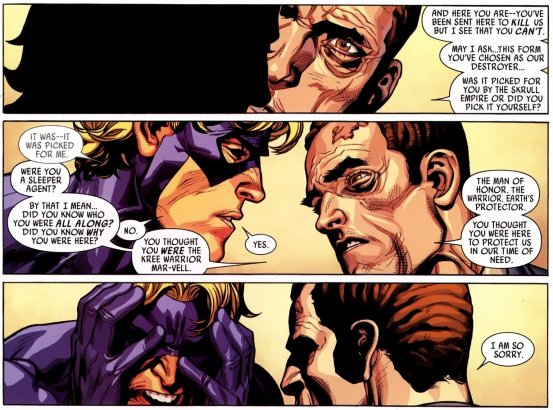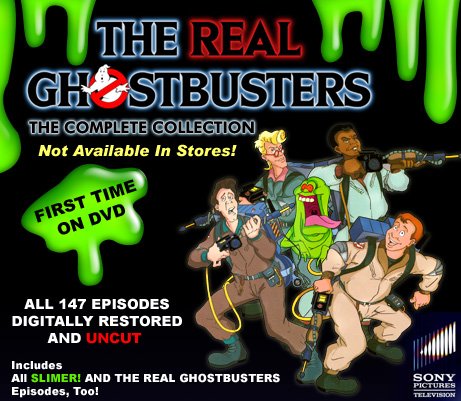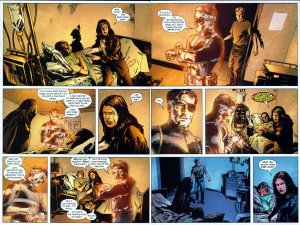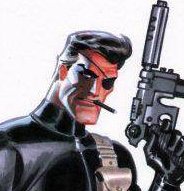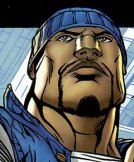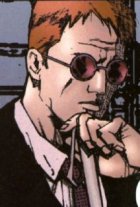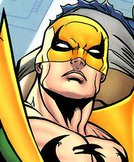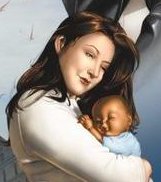
Comics & Criticism, Part II: Comic & Critic Harder
August 18th, 2008 Posted by david brothers | Tags: criticism, mike choi, scott kurtzArtist Mike Choi noticed my post on criticism and art the other day, found it interesting, and wondered this:
A lot of people are taking offense to the ideas that Scott Kurtz and David Kellet bring up, that there is no room for critics in the creative process, and that all criticism is to be deflected, not used to correct. A lot of those people are critics though, so there might be some motivation to assume that position, but it doesn’t make it wrong.
However, I will pose this: Why do critics do what they do? What is their impetus to sit down and write a critique on something? I’ve heard many answers to what critics do and what purpose criticism serves, but what is the reason that they take it upon themselves to fulfill that function, without solicitation or compensation?
Before I get into it, I do want to say that I wish the argument hadn’t been framed and linkblogged in various places as Critics vs Creators, because that instantly causes people to choose sides and throw down (or is it put on?) dueling gloves. I’m not speaking from a position of enmity here. I love comics. I spend a considerable amount of my free time reading and talking about comics. You can’t really do that and hate creators.
And there, I guess I kind of answered Choi’s question. I don’t even really think of myself as a critic, to be honest. But, I talk about comics and things in them, be it positive or negative, because I enjoy them.
I feel like all great art involves audience participation. I don’t mean that as in being involved in the creative process, but more in the sense of actively participating in discussions about, interpreting, and generally poring over the work itself.
I’m an English major at heart. The most fun I had in high school was doing those essays where you take a poem or passage from a book and take it apart piece by piece, figuring out what each part of it means and where it fits into the greater whole. I like Grant Morrison. Most of the reason why I like him is that his stories encourage this behavior. I liked Seaguy the first time I read it. I read it a second time to see what I missed the first time. And a third time. And a fourth time.
I like being able to converse about these books. David’s annotations for Batman RIP are a ton of fun, because they’re the outcome of these conversations.
It isn’t so much taking it upon myself to fulfill that function as growing into it due to being a fan. It’s no different than spitballing comics at the comic shop, though the internet allows you to put some deeper thought to it, and hopefully not say stupid things. It’s fun and hopefully interesting.
I kind of balk at the assertion that all criticism is to be ignored, not because of job security (I don’t do it for a living, it’s almost strictly on hobby status right now), but because that shows a frightening lack of foresight. Positive comments from fans and negative comments from critics, or vice versa, are all the same thing. It’s feedback. It’s letting the artist know what has been working and what hasn’t, and it’s letting the audience of fellow readers know what to expect.
I don’t think that you should have to listen to all critics ever, but I think that checking out positive and negative feedback and deciding what’s valid or not (a different scale for everyone, to be sure) is important in growing.
I’m not even coming at this from the position of “Ugh, why do those guys get to make comics and I don’t?” I’m not a comics creator. I’m part of a group that has creators and soon-to-be creators alike. I like being able to go to them and get advice/criticism on my writing. But, right now, I have so many hustles (1, 2, 3, 4, amongst others) that creating comics has been pushed to the wayside.
I’m coming at it from the position of “I love comics and need to talk about them with somebody.” My friend Larry Young has a catchphrase. It’s “Making comics better.” I think that talking and discussing all this stuff, be it race, sex, violence, or even simple stuff like the quality of work, helps to make comics better. It isn’t a calling or a job. It’s just something I fell into, or grew into, and realized that I enjoyed.

